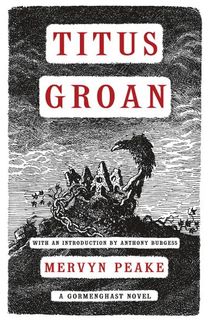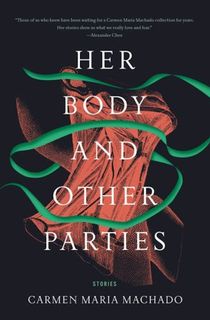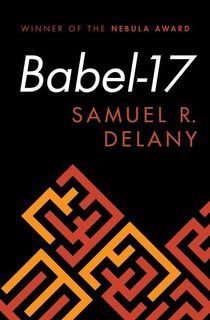Despite the popular joke that book clubs are simply a convenient cover for drinking wine with friends, they do offer a great opportunity to expand your horizons and pick up titles you normally wouldn’t read. In the realm of science fiction and fantasy, they also present a chance to explore novels that venture outside straightforward genre fare. Don’t get me wrong: Pure genre SFF is fun and enjoyable to read. But for a book club, you want to delve into books that serve up discussion material: prose stylings, storytelling structure and approach, and philosophical arguments. That’s where literary SFF comes in. Here are some selections to get you started with your book club.
Literary Sci-Fi/Fantasy That Can Spark Your Book Club

Station Eleven
Unexpected events sometimes become linked to life-changing moments. For Kirsten, an actor’s deadly heart attack on stage heralded the arrival of a devastating pandemic. Two decades later, she travels with a troupe of actors in what remains of the Great Lakes region. Their small band has dedicated themselves to keeping the arts and humanities alive in a changed world, but their latest sojourn brings them face to face with a dangerous prophet.

Rendezvous with Rama
A cornerstone of Clarke’s impressive bibliography, this multi-award-winning novel reminds readers that aliens can be unknowable and beyond comprehension. In the distant future, humans detect an enormous cylindrical object hurtling through the solar system toward the sun. They send a ship to investigate the mysterious object—dubbed Rama—where they discover it’s not an object at all but rather a gigantic spacecraft containing signs of an advanced civilization without any evidence of the beings responsible for it.

This Is How You Lose the Time War
If the title of this epistolary novella rings a bell, there’s a reason for that. Last year, an enthusiastic social media post went viral and helped propel this book up the bestseller charts. Curious about the premise? Two time-traveling agents from warring empires cross paths as they complete assigned missions that alter history. They leave each other messages that track their relationship as it shifts from antagonism to love. But never forget: they’re enemies and their relationship would be frowned upon by their superiors at the very least.

Piranesi
Most readers probably first encountered Susanna Clarke via her previous novel, Jonathan Strange and Mr. Norrell—which, coincidentally, is another popular book club selection. Her follow-up couldn’t be more different, however. While Jonathan Strange and Mr. Norrell topped 800 pages, Piranesi comes in under 300. Free from the footnotes that characterized her debut, her latest offering follows a man named Piranesi who lives in a House and chronicles his travels through the building’s labyrinthine halls and tunnels through a series of journals. Nothing is what it seems here, and the labyrinthine House hides a secret.

Titus Groan
Titus Groan begins with the birth of the titular character, who is also the 77th heir to Gormenghast Castle. Bound by ritual and suffocating structure, members of this noble family have been weighed down by life and circumstance. By contrast, the kitchens give rise to Steerpike, a boy who escapes his supposedly predetermined fate as servant and charms his way into a new position that promises better advancement—an anathema to this world.

Her Body and Other Parties
Machado’s short story collection spans the science fiction and fantasy spectrum, often delving into horror. More accurately, her work blithely knocks down the artificial boundaries that separate genres. From a retelling of a classic horror story about a girl that wears a green ribbon around her neck to an audacious reimagining of the Law and Order: Special Victims Unit television series, this book is unapologetically queer, feminist, and cathartic.

The Sparrow
A first contact story like no other, The Sparrow opens with humanity discovering proof of extraterrestrial life via beautiful music sent through outer space. Jesuits organize an expedition to the planet broadcasting the songs where the explorers meet two different alien races and change both them and themselves forever.

The Golem and the Jinni
Drawing upon both Jewish and Arabic lore, Wrecker’s debut fantasy tale provides a window into the immigrant experience at the dawn of the 20th century. Chava is a golem, brought to life via dark magic to be the wife of a pitiful man. But when her new master and would-be husband dies during the Atlantic voyage to New York, she’s left alone in a new city in a new land. Meanwhile, a tinsmith attempts to repair a copper flask and inadvertently releases the jinni—Ahmad—trapped inside. And shaped by different cultures and driven by contrasting impulses, Chava and Ahmad strike up an unlikely friendship.

Babel-17
In the far-flung future, humans wage an intergalactic war. The Earth-based Alliance faces incursions from the Invaders. Unfortunately, the Invaders are proving quite adept as they’ve launched several successful and damaging attacks. The only clue they leave behind comes in the form of coded messages. Enter Rydra Wong, a renowned linguist, who’s been charged with deciphering the code. But her efforts reveal a startling truth: the messages aren’t a code at all but a language in and of itself—one with drastic, life-altering effects.

Klara and the Sun
Ishiguro’s novel, Never Let Me Go, is probably his most well-known work of literary SFF. Klara and the Sun takes up many of the same themes, this time exploring a dystopian society that genetically engineers children for improved academic performance. In this world, children have few options for socialization, so parents can purchase android companions for them. One such android, Klara, is brought on to be the companion for Josie, a girl suffering from an illness caused by her genetic engineering. But the remarkable observation and mimicry skills that set Klara apart from other androids might serve another purpose in the end.

Circe
Mythological retellings are nothing new and remain consistently popular. Miller’s debut novel, The Song of Achilles, retold the Trojan War through the eyes of Patroclus, the companion and lover of the Greek hero. Circe follows this structure, this time telling the story of a goddess often relegated to cameos throughout classic mythology: the enchantress who turned Odysseus’s men to swine, the jealous goddess who transformed a beautiful nymph into a sea monster, the aunt of both the Minotaur and Medea. Told in beautiful, spare prose, Circe helped launch the current literary trend of feminist retellings of maligned and underappreciated women from Greco-Roman mythology.








